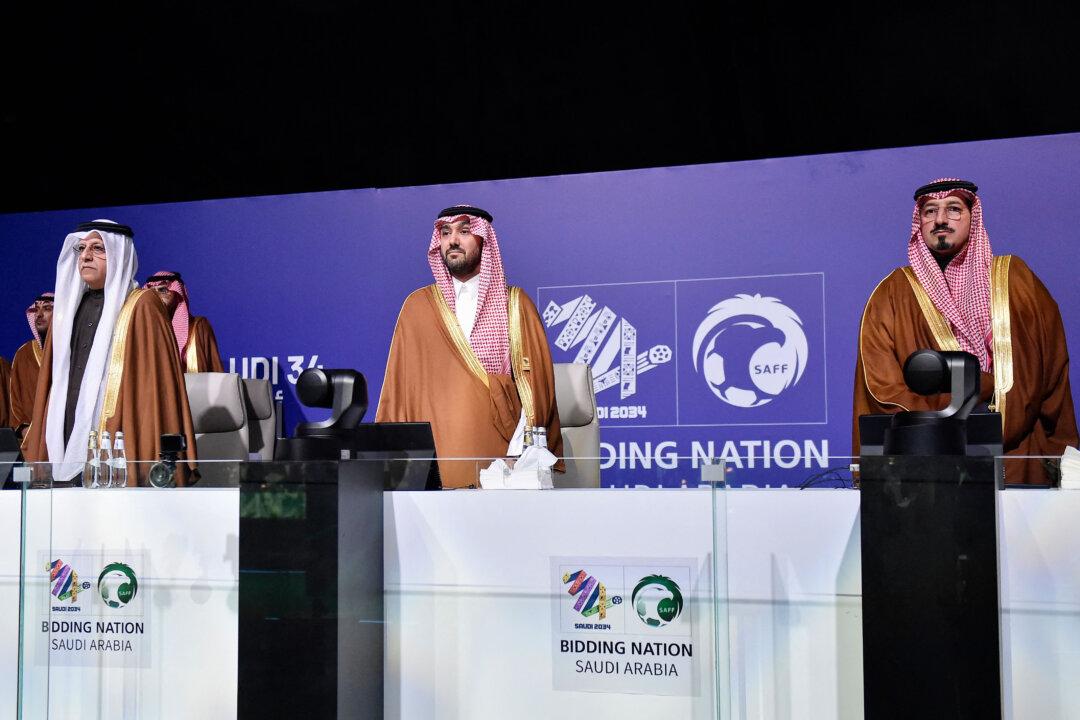Saudi Arabia will host the World Cup in 2034. However, FIFA’s decision to award the premier soccer tournament to the desert kingdom has human rights activists voicing concern.
“FIFA’s reckless decision to award the 2034 World Cup to Saudi Arabia without ensuring adequate human rights protections are in place will put many lives at risk,” a group of 21 human rights organizations declared in a joint statement released on Wednesday.
The statement alleged that soccer’s governing body knows “workers will be exploited and even die without fundamental reforms in Saudi Arabia, and yet has chosen to press ahead regardless.”
To host a World Cup, a nation such as Saudi Arabia is faced with building stadiums, hotels, and additional amenities to host millions of fans who will attend the five-week-long tournament.
The joint statement cites Saudi Arabia’s “weak human rights protections” and says there is evidence of migrant workers being exploited and subjected to racism. The country denies accusations of human rights abuses and says it protects its national security through its laws.
This isn’t the first time FIFA has chosen a host country beset by human rights issues. Similar concerns were voiced when Qatar, another country known for worker exploitation, hosted the World Cup in 2022.
The Epoch Times reached out to the embassies of both nations for comment but received no reply by publication time.
“We have documented too many labour abuses of migrant workers in Qatar at the previous World Cup, and there is nothing to indicate that Saudi Arabia will be any better,” said Khalid Ibrahim, executive director of the Gulf Centre for Human Rights, one of the signers of the joint statement.
“Saudi Arabia must be held to account for all of its human rights violations, and if it really wants to welcome people to the country for sporting events, then all those imprisoned for their peaceful human rights activities must be freed, including human rights defenders languishing in prison for decades.”
Taha al-Hajji, legal director of the European Saudi Organisation for Human Rights, who also contributed to the joint statement, said he isn’t confident Saudi citizens will benefit from the economic opportunities of hosting the World Cup.
Saudi Arabia’s “flawed and ambiguous laws, absence of transparency, and lack of independent civil society institutions” allow Saudi authorities and companies to exploit workers, he said.
Meanwhile, FIFA announced six countries as the co-hosts of the 2030 World Cup: Spain, Portugal, and Morocco, with centenary celebration matches in Argentina, Paraguay, and Uruguay.







